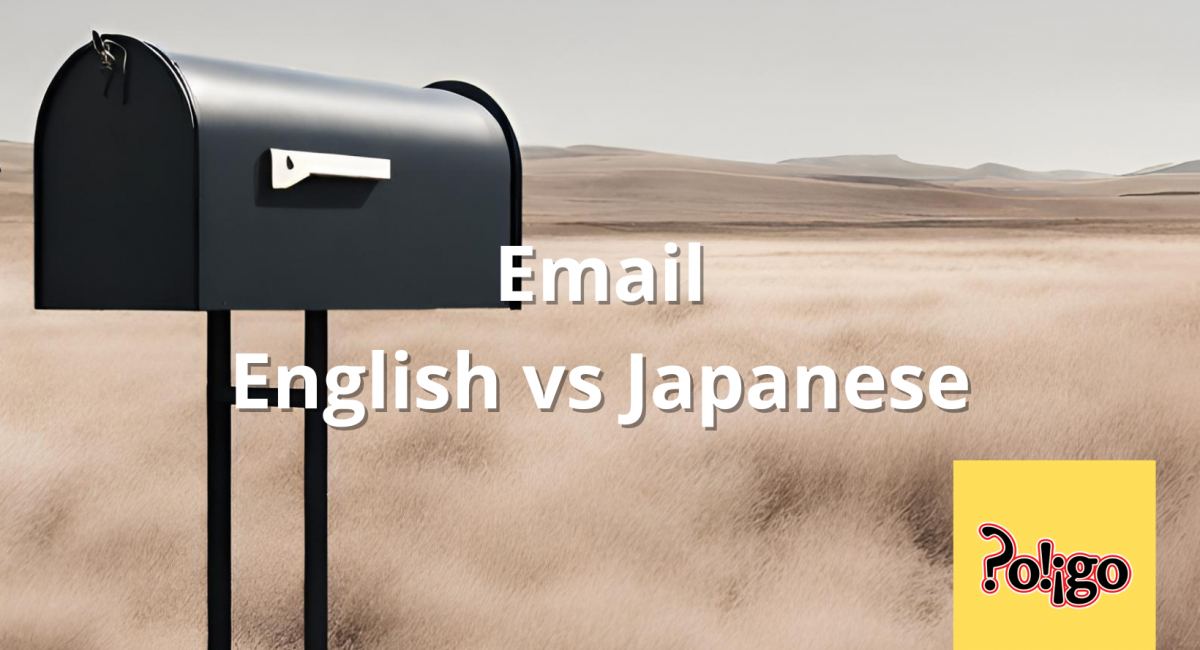Email is a blessing and a curse. It's a great way to communicate, but it can also be a time trap. In addition, getting the tone and style wrong can cause problems. Professionals from different parts of the world have different approaches to email. But it is most important to remember that just because you are emailing someone in English, it doesn't mean that they share an "English speaker" culture.
So before we start, here are three golden rules:
- Be polite—being too casual is not professional.
- Stay on topic—respect people's time by being brief.
- Match their tone and style—If they are being casual, you can be too.
Now let's look at 5 key differences between emails in Japanese and English.
Formality and Politeness
In Japan, formality is very important in business. It is in English too. Make sure you know how to express yourself formally in writing, because how you show that formality can be different. However, if you have regular exchanges with someone, then you can be casual in your English messages. If you are getting your email checked, make sure you tell us what your relationship is to the recipient and what tone you want in your message.
Directness vs. Indirectness
Japanese communication is often indirect with a preference for avoiding conflict. Famously, Japanese people tend not to say "no" directly and instead say that they will consider or think about suggestions.
In contrast, English work emails can be more direct. However, be careful. If you are too direct, it can come across as impolite and unprofessional. Just remember that English speakers usually appreciate clarity, but that you should also be polite. For example, you need to use phrases like "I am afraid that..." or "Unfortunately,..." to communicate bad news.
Length and Detail
Japanese work emails often include more details and explanations. It's common to provide context, background information, and extensive details to ensure the recipient fully understands the message. This is seen as a sign of thoroughness and respect for the recipient's understanding.
In English work emails, it's often best to be brief. Messages tend to be concise, focusing on the main points. Lengthy explanations are generally avoided. If more information is needed, the recipient will ask for it. Writing a very long email can be seen to be time-wasting or inconsiderate of the recipient's time.
Formal Closings
In Japanese, there are usually fixed phrases to use in situations to show respect and politeness. There is also a tendency to express appreciation and thanks. This often results in a longer closing to a Japanese email.
English is the same, but there is much more variety. Keeping it short is OK too. Here are a few examples:
- Sincerely
- Yours faithfully
- Best regards
- Kind regards
- Yours truly
- Respectfully
- Yours sincerely
- Warm regards
- Best wishes
- With best regards
- In appreciation of your time
- Regards
These are polite, even if they might seem short.
Response Time
Generally, responding promptly to work emails is considered important wherever you are. But the expectations can differ. Japanese professionals often prioritize a quick response as a sign of dedication and commitment. It's not uncommon to receive replies within a few hours or even minutes.
English-speaking professionals also value timely responses but tend to be more forgiving if there's a delay. It's generally acceptable to respond within 24 hours, although faster responses are appreciated, especially for urgent matters. These days, in international teams working across timezones, it's OK if it takes some time to respond.
Conclusion
Remember that just because you are using English, you cannot be sure of the culture of the person you are writing to. Understanding cultural differences in work emails is crucial for effective cross-cultural communication. By being aware of these distinctions in formality, directness, length, and other aspects, you can navigate work emails with greater confidence and respect for cultural norms. Whether you're communicating with Japanese colleagues or English-speaking counterparts, adapting your email style to match their expectations can help build stronger professional relationships.


